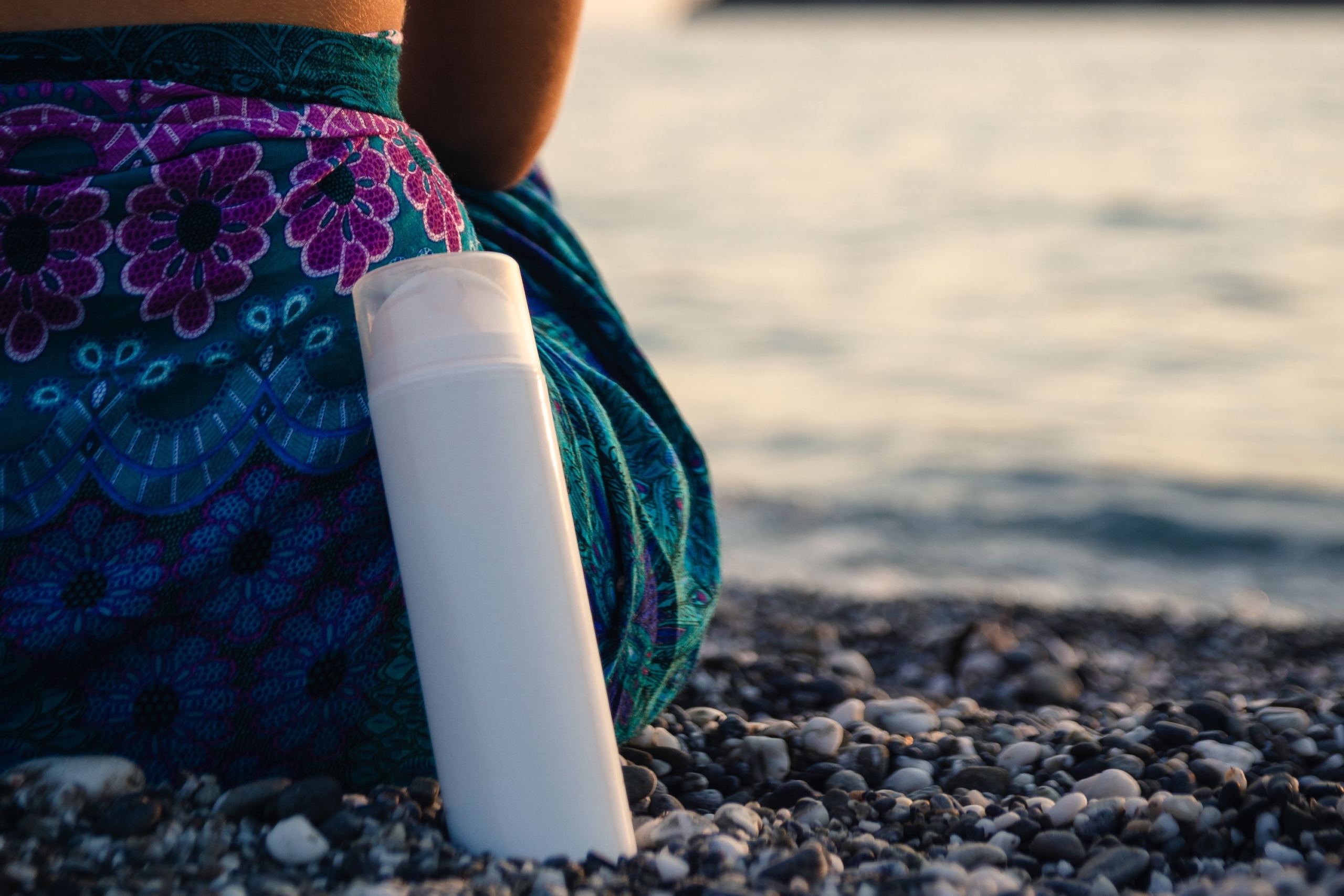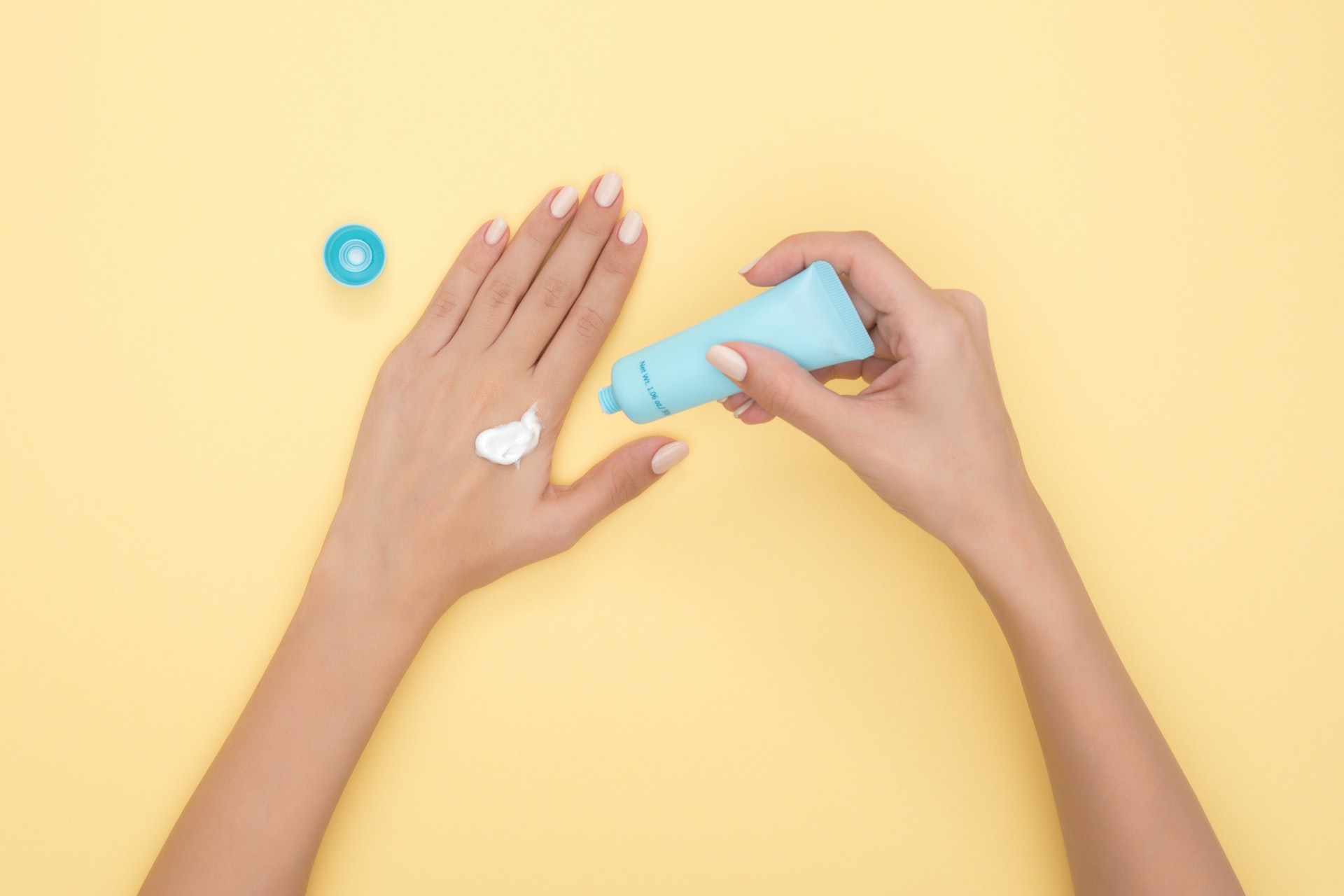Sunscreen is the most important product in any skincare routine. Not only does it protect your skin from painful sunburns, but it also prevents premature aging and dangerous sun exposure. So why can sunscreen leave your skin as red and sore as a sunburn itself? Likely, it’s because you’re using a chemical sunscreen that your skin doesn’t agree with.
Chemical sunscreen can cause irritation, clogged pores, and even allergic reactions in those with sensitive skin, but that doesn’t mean you have to forgo protection. Switch to an organic sunscreen made with minerals instead. Non-chemical sunscreens, also called physical sunscreens, are less likely to cause inflammation and irritation. Physical sunscreens are better for the environment too, so you can help Mother Earth while protecting your skin.
Standard sunscreen often includes chemical filters like oxybenzone, which are organic molecules that prevent sunburn by absorbing UV rays and converting them into non-damaging heat, which is then released by the skin.
According to Dr. Mona Gohara, associate clinical professor at the Yale School of Medicine’s dermatology department, “physical blockers are naturally occurring minerals that sit on the skin’s surface to deflect UV rays.” When we talk about organic sunscreen in the clean beauty space, what we mean sunscreen with these minerals that physically block damaging UV rays.
Chemical vs physical sunscreen
Are you wondering if your formula of choice is chemical or organic? Non-chemical sunscreens use zinc oxide, titanium dioxide, or a combination of the two as the active ingredient. If you see names like avobenzone, oxybenzone, or octinoxate on the ingredient list, you’re using a chemical sunscreen.
The problem with chemical filters like avobenzone and oxybenzone is that they’re absorbed into the skin and eventually enter the bloodstream. The FDA also notes that “little is known about systemic exposure for most active ingredients,” so there isn’t enough research to determine the risks of long-term exposure.
What we do know is that mineral sunscreens with ingredients like zinc oxide and titanium dioxide aren’t absorbed through the skin, so there’s a lesser chance of adverse reactions.

How to choose the best organic sunscreen for your skin type
Some formulas of sunscreen work better for certain skin types than others. Choosing the right formula for you can prevent breakouts, help your makeup apply evenly, and keep skin hydrated. We wrapped up the best organic sunscreen formulations for every skin type, so here’s what you should look for.
The best formula for dry skin
If you deal with constantly dry skin, opt for a moisturizing sunscreen that won’t leave skin feeling tight and itchy. Look for formulas containing ingredients like hyaluronic acid, which aids in moisture retention, and jojoba oil, which mimics the texture of your skin’s natural oils.
Pro tip: If you have extremely dry skin, layer your sunscreen over your favorite moisturizer. Sunscreen should always be the last step in your skincare routine (before you apply your makeup), as applying moisturizer after sunscreen can hamper its protection.
The best formula for oily skin
Try out a mattifying formula that contains oil-fighting ingredients like silica, especially if you notice an intense shine an hour after you apply sunscreen. Don’t panic if you see rosehip oil or evening primrose oil on the ingredient list–not all oils make your skin greasy, and even oily skin benefits from these moisturizing ingredients.
The best formula for acne-prone skin
If most sunscreens make your skin break out, you probably cringe at the thought of trying a new one. To limit the risk of a breakout, choose formulas made with skin-soothing ingredients like niacinamide, which combat acne and prevent future breakouts. Because zinc oxide sits on top of the skin, it won’t sink in and clog your pores.
The Best formula for sensitive skin
Sensitive skinned folks should opt for dermatologist-tested formulas created for people with sensitive skin. Make sure your sunscreen is fragrance-free, too, as added fragrances are a leading cause of sensitive skin. Essential oils are also known irritants for those with sensitive skin, so an oil-free formula is likely your best bet.
Trust us on the sunscreen
No matter your skin type or complexion, you need sunscreen. UVB rays, the wavelength responsible for sunburn, may not bother you on cloudy days, but UVA rays have a longer wavelength, penetrating cloud coverage and even glass.
Not sure how much sunscreen you need? Stick to the two-finger rule, and draw a line of sunscreen down your index and middle fingers. This should be the perfect amount to protect your face, neck, and ears.
Want more? Check out our list of clean sunscreen brands that promise to not only protect your skin from sun damage, but also to protect the environment from harsh ingredients.




